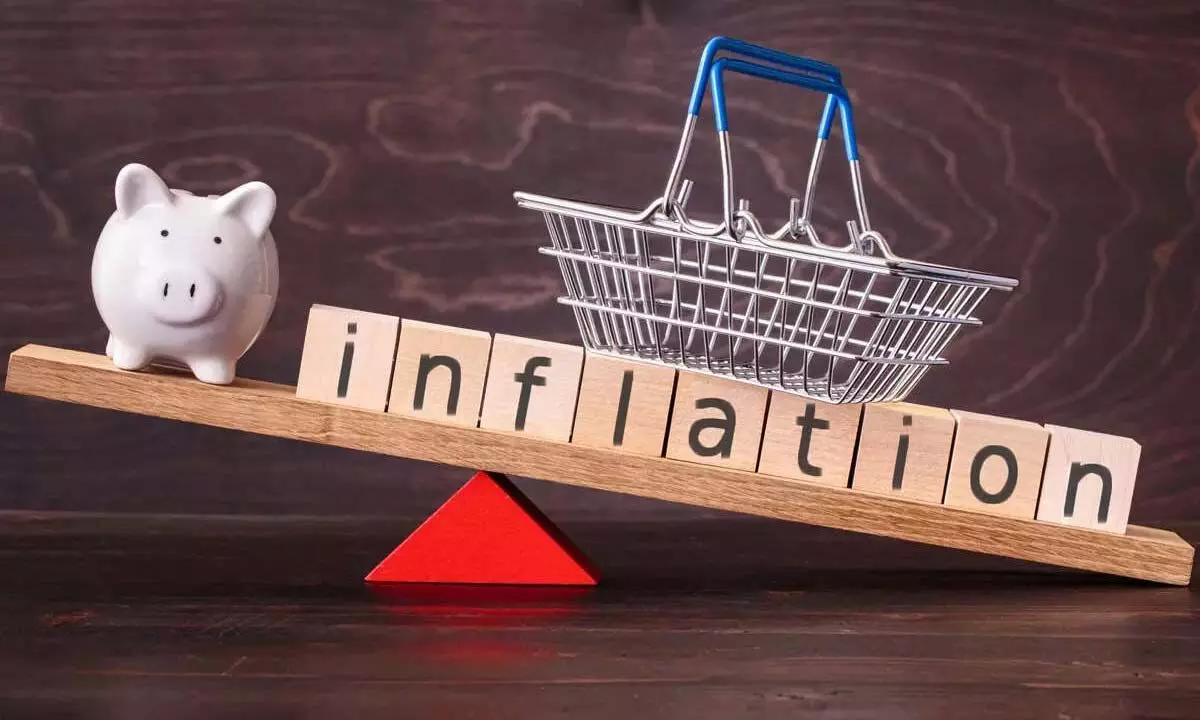What does inflation mean for industry?
Company’s profit margins decreases as inflation makes factors of production expensive. And after an extent, companies shift the burden of these additional expenses to the final consumer
image for illustrative purpose

Global consumer price inflation reached 5.2 per cent year on year in November and December 2021, the highest level since 2008. According to IHS Markit, inflation will remain high in 2022, hovering around 5 per cent, before falling to 2.8 per cent in 2023. Most regions' growth will experience a halt in 2022. IHS Markit also forecasts that global real GDP growth will settle at 3.4 per cent in 2023 and 3.1 per cent in 2024 as fiscal and monetary policies tighten and suppressed consumer demand is satisfied.
Inflation is a sustained increase in price of goods and services over a period of time in an economy. When the price of commodities increases then each unit of currency buys fewer goods and services and hence inflation reflects a reduction in the purchasing power per unit of money.
India is considered to be the large market that doesn't have a strong monetary policy framework. This is one of the main reasons why India mostly faces rise in inflation after the financial crisis.
Inflation in March was nearly 7 per cent, and the same was reflected in transport and communication inflation. Fuel prices increased by 7.5 per cent while transport and communication inflation went up by 8 per cent.
The WPI inflation accelerated to 15.1 per cent in April 2022, the highest level since September 1991, from 14.5 per cent in March 2022, partly on account of the jump in fuel prices during the month, exceeding projections. The heat wave led to a spike in prices of perishables such as fruits, vegetables and milk, which along with a spike in tea prices pushed up the primary food inflation. The core-WPI inflation reverted to a four-month high of 11.1 per cent in April 2022, with producers forced to pass on the input price pressures. While the month-on-month (MoM) rise in the core-WPI eased to 1.4 per cent in April 2022 from 1.8 per cent in March 2022, it exceeded 1 per cent for the third consecutive month. With the WPI inflation continuing to print in double-digits, the probability of a repo hike in the June 2022 review of monetary policy has risen further.
Inflation has many causes, but they mainly break down into two camps: demand-pull and cost-push. Demand-pull happens when an increase in the demand for goods and services leads producers to raise prices to maximize profits. Cost-push occurs when producers raise prices because their costs have gone up. Over time, inflation can significantly impact your cost of living, and it affects everyone from ordinary people to businesses and the stock market.
Persistent inflation in an economy can have some very adverse effects. Many problems currently plaguing our economy are results of inflation in our economy. Rapid inflation can disrupt our entire economy and can cause a financial crisis in the country. Let us take a look at some of the adverse effects that are results of inflation in the Indian Economy.
The rising prices mean that the factors of production like labour and raw materials have also become expensive. The profit margins of the companies are decreasing. And after an extent, the companies pass on the burden of these additional expenses to the final consumer. And the entire economy suffers. One of the major results of inflation in an economy is the general slowdown of the economy. When this happens, unemployment rates rise, the purchasing power of the consumer decreases, credit becomes expensive. All these cause a strain on the entire financial system of the country. It discourages heavy investment in the economy by both domestic and international players.
India is a consumption-driven economy and high inflation will potentially impact growth and resources. CPI inflation has now breached RBI tolerance band for inflation for the second consecutive month. Inflation could prove to be a serious challenge for India's economic growth.

